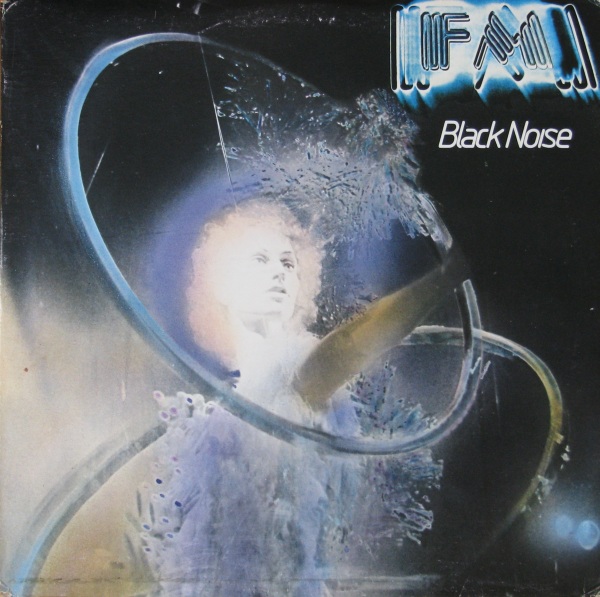
Exposé Online
What's old
Exposé print issues (1993-2011)
- 1 (October 1993)
- 2 (February 1994)
- 3 (May 1994)
- 4 (August 1994)
- 5 (October 1994)
- 6 (March 1995)
- 7 (July 1995)
- 8 (November 1995)
- 9 (March 1996)
- 10 (August 1996)
- 11 (February 1997)
- 12 (May 1997)
- 13 (October 1997)
- 14 (February 1998)
- 15 (July 1998)
- 16 (January 1999)
- 17 (April 1999)
- 18 (November 1999)
- 19 (May 2000)
- 20 (October 2000)
- 21 (March 2001)
- 22 (July 2001)
- 23 (December 2001)
- 24 (April 2002)
- 25 (September 2002)
- 26 (February 2003)
- 27 (August 2003)
- 28 (December 2003)
- 29 (April 2004)
- 30 (September 2004)
- 31 (March 2005)
- 32 (September 2005)
- 33 (May 2006)
- 34 (March 2007)
- 35 (January 2008)
- 36 (October 2008)
- 37 (July 2009)
- 38 (July 2010)
- 39 (Summer 2011)
Reviews
FM — Black Noise
(Esoteric Recordings ECLEC2376, 1978/2013, CD)
by Peter Thelen, Published 1994-08-01

The reissue of the second album by this excellent Canadian trio has been long awaited by many. A rather nonstandard three-piece, their most unique feature was the substitution of mandolin/violin for parts that would normally be handled by guitars, on this album played by Nash the Slash (don't worry, this is nothing like the techno-thrash solo material he is better known for...). De-facto bandleader Cameron Hawkins plays either synthesizer and bass pedals, or bass guitar and synth-pedals, and is the group's lead vocalist. Martin Deller ties it all together with the drums, keeping the mix busy and energized. The band covers a lot of bases here, from fusion to an accessible rock sound to a very heavy bombastic prog, either as instrumental workouts, or served up with sci-fi lyrics (which would become their trademark). The mandolin is played with all the standard guitar treatments (fuzz, feedback, delays, etc.) and performs precisely the same duty as a guitar would in any other band, but the solos give it away: high-pitched screamers that yield to nothing. "Phasors on Stun" and "Aldeberan" are the most accesible tunes here, yet they fare well within the band's instrumental vision. With "One O'Clock Tomorrow" they adopt an almost Yes-like feel, further accentuated by the parallel lyrics, vocal harmonies, and the Chris Squire trademark Rickenbacker bass sound. "Journey" is an almost-straight-ahead rocker — it's here that Nash's solid-body mandolin rocks its hardest. "Black Noise" is a heavy and dark — and typically progressive rock opus of the ten-minute type, and while very intense, it also shows some of the band's weaker tendencies: a bit too much repetition and a knack for meandering. Probably the album's finest tracks are two instrumentals that are more in the violin-fusion mode: "Slaughter in Robot Village" and "Hours," both of which point to the sound on the band's 1977 album Headroom, yet here that loose-and-free sound is given a more cohesive sense of purpose via stronger material. This was a good album in '78 and it's still a good album today; it covers a lot of ground musically and offers something for everyone. Recommended.
Filed under: Reissues, Issue 4, 2013 releases, 1978 recordings
Related artist(s): FM, Nash the Slash (Jeff Plewman)
What's new
These are the most recent changes made to artists, releases, and articles.
- Review: LeoNero - Monitor
Published 2026-03-04 - Review: Sterbus - Black and Gold
Published 2026-03-03 - Release: Janel Leppin's Ensemble Volcanic Ash - Pluto in Aquarius
Updated 2026-03-02 15:06:51 - Release: Janel Leppin - Slowly Melting
Updated 2026-03-02 15:05:27 - Release: Alister Spence - Always Ever
Updated 2026-03-02 15:04:11 - Release: Let Spin - I Am Alien
Updated 2026-03-02 15:02:41 - Review: Falter Bramnk - Vinyland Odyssee
Published 2026-03-02 - Review: Exit - Dove Va la Tua Strada?
Published 2026-03-01 - Review: Steve Tibbetts - Close
Published 2026-02-28 - Release: We Stood Like Kings - Pinocchio
Updated 2026-02-27 19:24:02 - Release: Stephen Grew - Pianoply
Updated 2026-02-27 19:20:11 - Release: Thierry Zaboitzeff - Artefacts
Updated 2026-02-27 00:16:46 - Review: Kevin Kastning - Codex I & Codex II
Published 2026-02-27 - Release: Zan Zone - The Rock Is Still Rollin'
Updated 2026-02-26 23:26:09 - Release: The Leemoo Gang - A Family Business
Updated 2026-02-26 23:07:29 - Release: Ciolkowska - Bomba Nastoyashchego
Updated 2026-02-26 13:08:55 - Review: Immensity Crumb - Chamber Music for Sleeping Giants
Published 2026-02-26 - Release: The Gatekeepers - Diary of a Teenage Prophet
Updated 2026-02-25 15:55:58 - Listen and discover: Mordecai Smyth will not break your back
Published 2026-02-25
